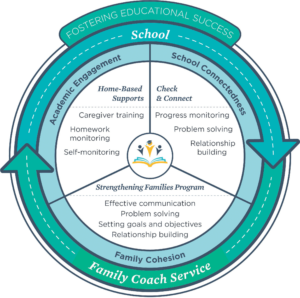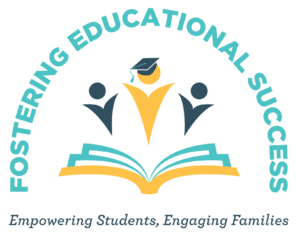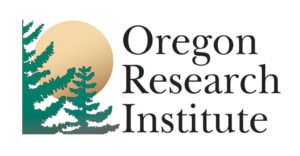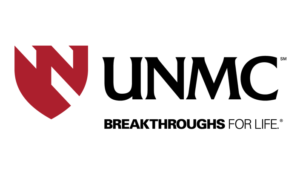- About Us
Overview
KVC Nebraska is a private, nonprofit organization that provides a variety of programs and services to meet the diverse needs of Nebraskans.
Our mission is to enrich and enhance the lives of Nebraska youth, individuals and families.
Learn More
- Services
Overview
We offer a variety of programs and services to meet the diverse needs of children, youth, adults and families. We accept referrals from the State of Nebraska Department of Health and Human Services, Nebraska Juvenile Probation, and parents and caregivers.
- Impact
- Locations
- Resources
Overview
KVC Nebraska provides a variety of resources to help educate the community about child welfare, foster parenting, caring for individuals with disabilities, healthy brain development and more.
- Blog
- Events
- FAQs
Fostering Educational Success
Supporting Youth Education
Navigating the transition from foster care can be difficult for children and families. Fostering Educational Success is a home- and school-based program that provides additional support to youth and their caregivers during this time. The primary goal of Fostering Educational Success is to improve elementary and secondary school students’ educational experiences and help them create successful outcomes after leaving foster care.
 Fostering Educational Success is an educational program that seeks to strengthen students’ support systems and aid in family stability by:
Fostering Educational Success is an educational program that seeks to strengthen students’ support systems and aid in family stability by:
- School and emotional support through transition
- Help with home-school communication
- Individualized caregiver support
- Assistance with building life skills
Each student will have a dedicated Family Coach who will work directly with them, their caregivers, and their school to serve as an academic resource, advocate, and liaison to ensure their success. Family Coaches provide support in three areas:
- School connectedness
- Academic engagement
- Family cohesion
Fostering Educational Success Program Goals
Goals include improving school connectedness, academic engagement, family communication, home-school relationships, and school success.
Program Eligibility
Know a family who may benefit from these services? Participants must meet the following criteria:

- English-speaking
- Live within 60 miles of Lincoln or Omaha
- Youth is enrolled in elementary through secondary school settings ages 7-19
- Youth has a history of foster care involvement
- Committed caregiver who is willing to participate in FES
- Permanency objective is guardianship, independent living, adoption, or reunification that will occur within the immediate future
The Fostering Educational Success (FES) Program brochure describes our program and our partners, while our Caregiver Flyer provides information that youth caregivers will want to know before enrolling in our program.
Refer a Student for Fostering Educational Success
Please complete this form to make a referral to Fostering Educational Success.
Questions? Contact Emily Kunkle at ekunkle@kvc.org.
Program Partners
This program is part of a five-year collaboration between KVC Nebraska, researchers at the Oregon Research Institute (ORI) and the University of Nebraska Medical Center. This program was awarded a grant from the United States Department of Education.
 Oregon Research Institute (ORI)
Oregon Research Institute (ORI)
Oregon Research Institute (ORI) is committed to scientific freedom and scientific excellence. They provide a thriving, collegial research community for early career scientists and seasoned researchers alike. The multi-disciplinary expertise of ORI’s investigators promotes dynamic collaborations and cutting-edge science.
 University of Nebraska Medical Center
University of Nebraska Medical Center
The University of Nebraska Medical Center is the professional and scientific home of brilliant researchers who work at the forefront of fields like transplant medicine, cancer, neurodevelopment and genomics. With collaboration from a highly engaged community of skilled professionals and access to world-class facilities, UNMC researchers identify and focus on critical questions that lead to new knowledge and life-changing therapies.